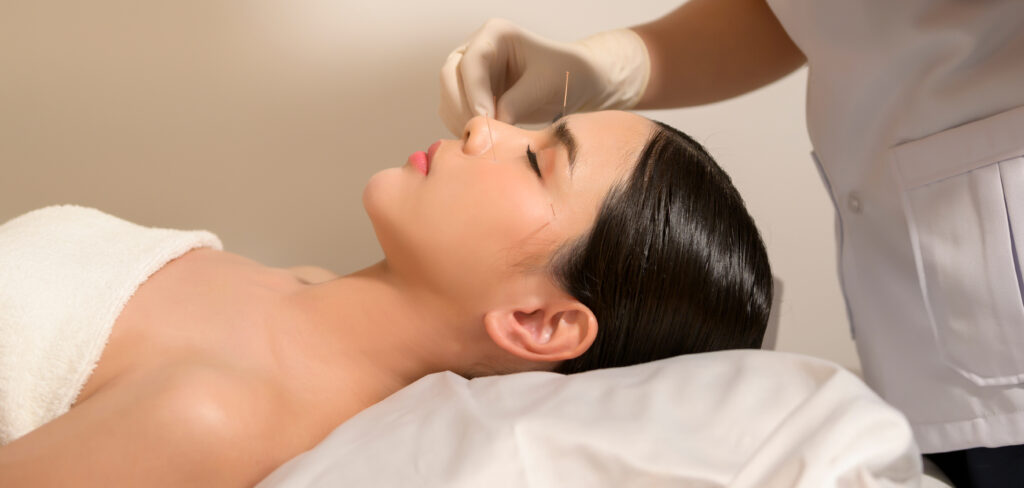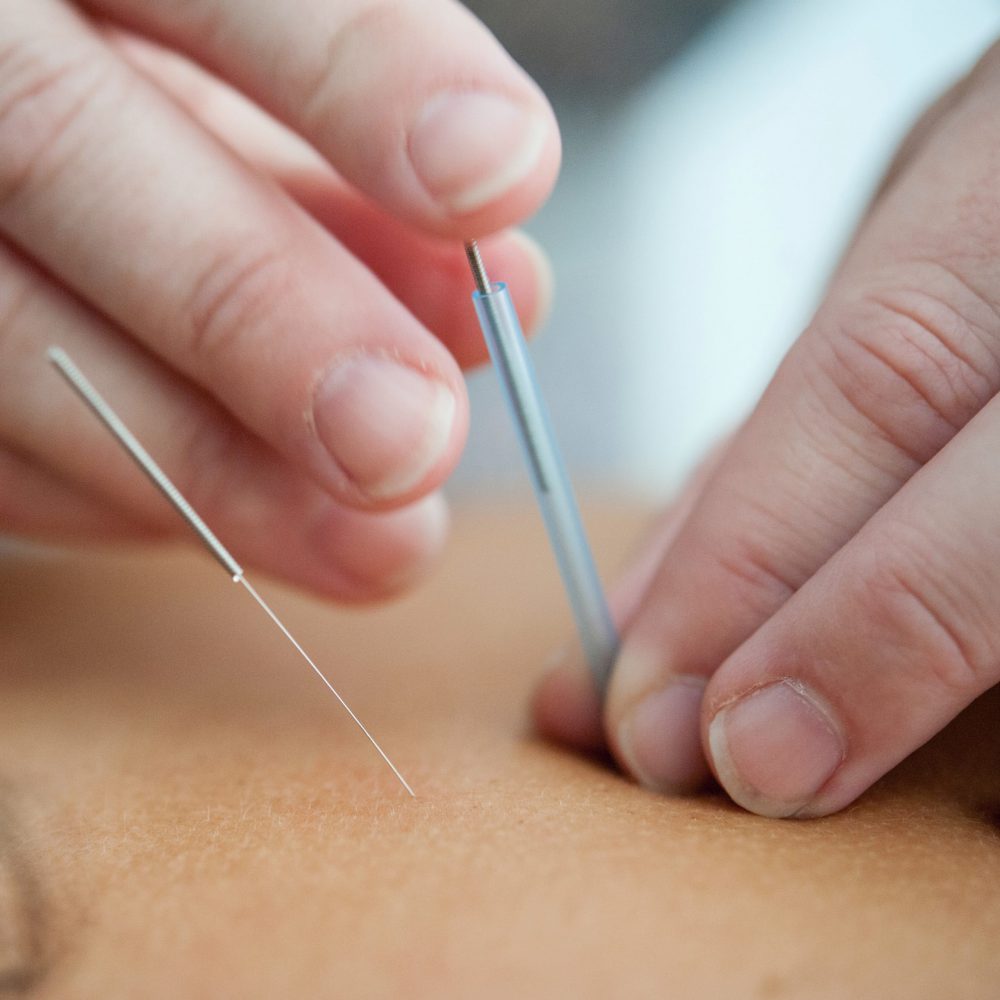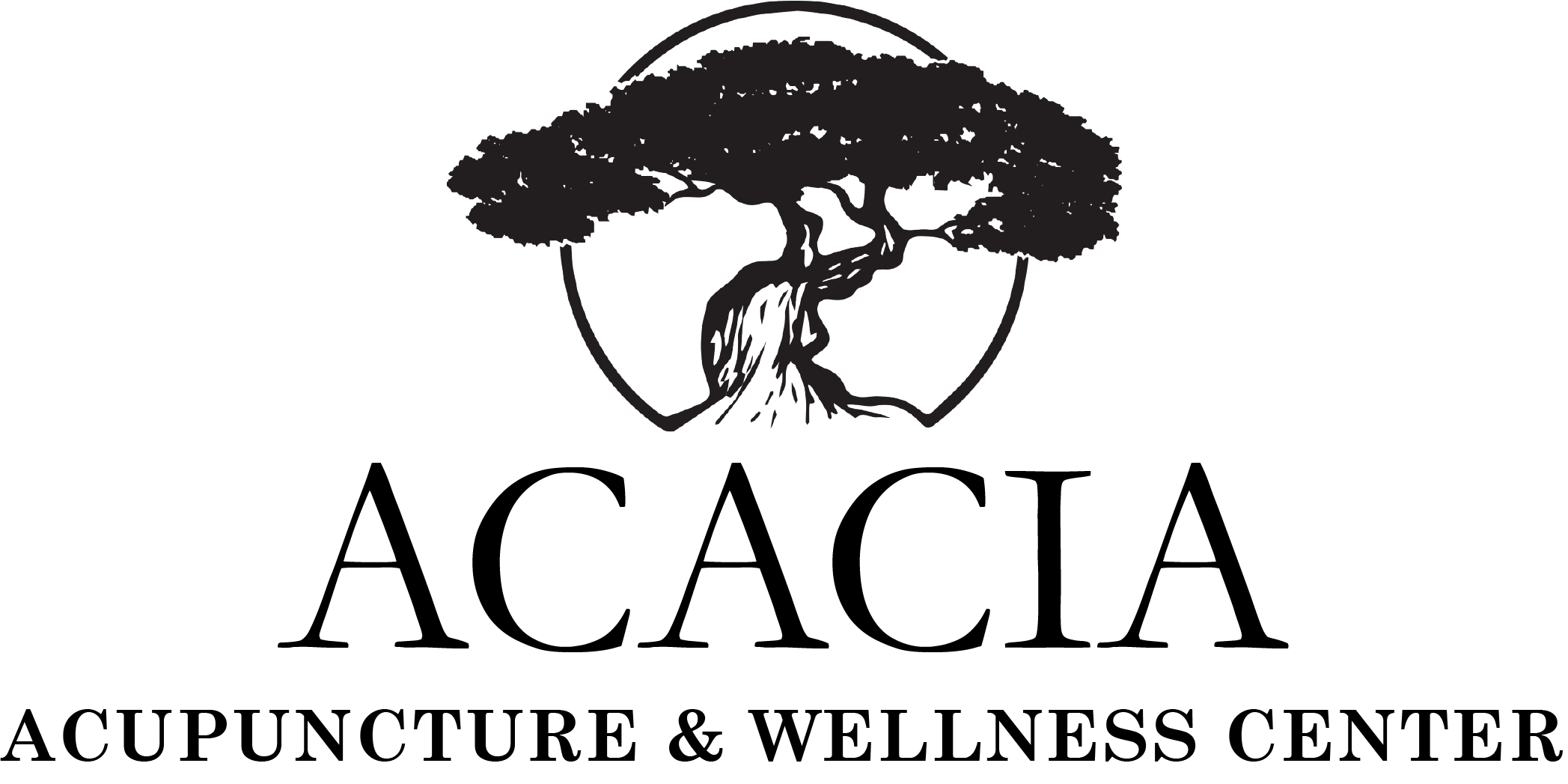Traditional Chinese Medicine
What is Acupuncture?
Acupuncture is a key component of traditional Chinese medicine that naturally promotes health and alleviates ailments. Through the insertion of very thin needles into specific anatomical points, known as acupuncture points throughout the body. Although acupuncture may seem mysterious to some, it is one of the most proven and well-known forms of alternative therapies in the world.

Acupuncture is part of the ancient practice of Traditional Chinese medicine. Traditional Chinese medicine practitioners believe the human body has more than 2,000 acupuncture points connected by pathways or meridians. These pathways create an energy flow (Qi, pronounced “chee”) through the body that is responsible for overall health. Disruption of the energy flow can cause disease. By applying acupuncture to certain points, it is thought to improve the flow of Qi, thereby improving health. Studies have shown that acupuncture is effective for a variety of conditions.
Is acupuncture safe?
Many studies have been conducted demonstrating the safety and efficacy of acupuncture. When administered by a licensed practitioner, acupuncture is a very safe form of therapy. Acupuncturists in Pennsylvania are trained and certified in Clean Needle Technique, which requires the adherence to strict safety guidelines, such as the use of sterile, disposable needles, to minimize the risk of infection. .
Does acupuncture hurt?
For most people, acupuncture causes minimal to no pain. The needles used during acupuncture are called filiform needles which are very thin and solid. They are nothing like the hypodermic needles used to give injections at a doctor’s office. Normal sensations that you may feel when the needle is inserted is a slight tingling, dull ache, or warm sensation. These are desired effects and should not be uncomfortable. Often, during an acupuncture treatment, a patient feels so relaxed that he or she will fall asleep. Most people leave their acupuncture sessions feeling relaxed and refreshed.

What conditions does acupuncture treat?
The World Health Organization (WHO) recognizes acupuncture as a suitable treatment for many disorders including:
- Infections – Colds, flu, bronchitis, hepatitis.
- Internal Medicine – Hypoglycemia, diabetes, asthma, blood pressure issues, ulcers, colitis, irritable bowel, nausea, heartburn, hemorrhoids, constipation, diarrhea, chronic fatigue, immune disorders.
- Eyes-Ears-Nose-Throat – Earaches, deafness, ringing in ears, poor eyesight, retinitis, conjunctivitis, uncomplicated cataracts, sinusitis, sore throat, allergies.
- Musculoskeletal & Neurological – Arthritis, back pain, bursitis, tendonitis, headaches, migraines, stroke, cerebral palsy, pre- and post-operative care, repetitive strain, chronic pain.
- Genito-Urinary & Reproductive – Impotence, infertility, PMS, PID, vaginitis, yeast infections, prostatitis, cramps, morning sickness, UTI, irregular periods, menopause.
- Mental & Emotional – Depression, anxiety, insomnia, addictions, weight loss.
- Dermatological – Eczema, psoriasis, acne, herpes.
Bringing traditional medicine into the mainstream of health care — appropriately, effectively, and above all, safely based on the latest scientific evidence — can help bridge access gaps for millions of people around the world. It would be an important step toward people-centered and holistic approaches to health and well-being.
– Dr Tedros Adhanom Ghebreyesus, WHO Director-General
